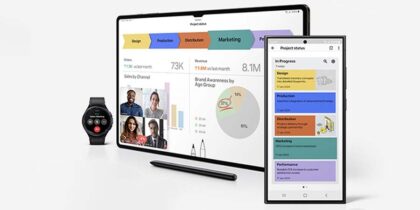Filing tax returns is not something many people enjoy. It’s an arduous and time-consuming task that leaves people frustrated and fretting as the April 15 deadline approaches. But there is hope. With the advent of machine learning and its integration into finance software, we could soon be relying on bots and machines to do our filing for us.
The Rise of Machine Learning and Artificial Intelligence
The world is full of data, and we are creating it at ever-increasing rates. With the advent of the Internet of Things, the amount of data out there is going to explode even more in the coming years. Creating lots of data is one thing, but making sense of it is an entirely different challenge. In order to handle the scale of data we create on a daily basis, artificial intelligence is beginning to play a vital role in all aspects of our lives.
Machine learning is a branch of artificial intelligence that gives computers the ability to teach themselves — by trawling through vast data sets, recognizing patterns and becoming smarter — without the need for human intervention. For humans, the thought of reading tens of thousands of pages of federal tax code might sound like an impossible task, but for machine learning algorithms, it’s what they crave. A recent KPMG report suggests that in the not-too-distant future, some of the work currently carried out by accountants will be done by robots, and that the size of organizations like the IRS will shrink.
Finding work-life balance is difficult in finance.
Use your mobile device to help you work smarter — not harder. Download Now
Apps Using AI to Simplify Tax Filing
While we’re not there yet, we’re already seeing the beginnings of how artificial intelligence is helping to make filing tax returns easier. Here are some examples of finance software that’s leveraging the ability of AI to simplify life for their customers:
- TurboTax — An online tax return tool, Intuit’s TurboTax makes use of machine learning in a less obvious way. It uses the technology in the background to make it easier for users to navigate their way through an otherwise arduous process. Just like much of the application of artificial intelligence in other areas, customers rarely notice the nuts and bolts of the technology at work, but do recognize the time savings it brings.
- H&R Block — IBM’s Watson is an artificial intelligence platform that has been applied to tackling cancer and ALS research, and now it’s being applied to the tax code. H&R Block have integrated the platform into their financial software solution, and it will read and process 74,000 pages of federal tax code in order to find tailored solutions for customers. The system will work alongside human tax professionals, rather than replacing them, but by doing a lot of the grunt work, it will make those professionals more efficient at their job.
- AskMyUncleSam – Signifying the further development of apps like TurboTax, this is a chatbot integrated into Facebook Messenger and Slack that has been created to interact with users in a very human way, allowing them to ask about any tax credits they not be aware of. The aim is to have a database of up to 10,000 queries that people can access to make filing easier. “With AskMyUncleSam, you will know what tax benefits are available to you and what actions you could take to reduce your tax bill by asking Sam a tax or financial related question,” says Busayo Ogunsanya, founder and head accountant at AskMyUncleSam.
We are already beginning to see the impact that artificial intelligence is having on the world of tax returns, but in the future, that impact is going to become even more pronounced. Going forward, we will see fully automated systems which will be able to pinpoint the exact piece of tax code businesses are looking for, while machine learning and natural language processing technology will offer an easy and intuitive way for anyone to get answers on even the most complex of tax issues.
New technology like robo-advisors and AI are also playing a large role in reshaping FinTech hiring practices.








